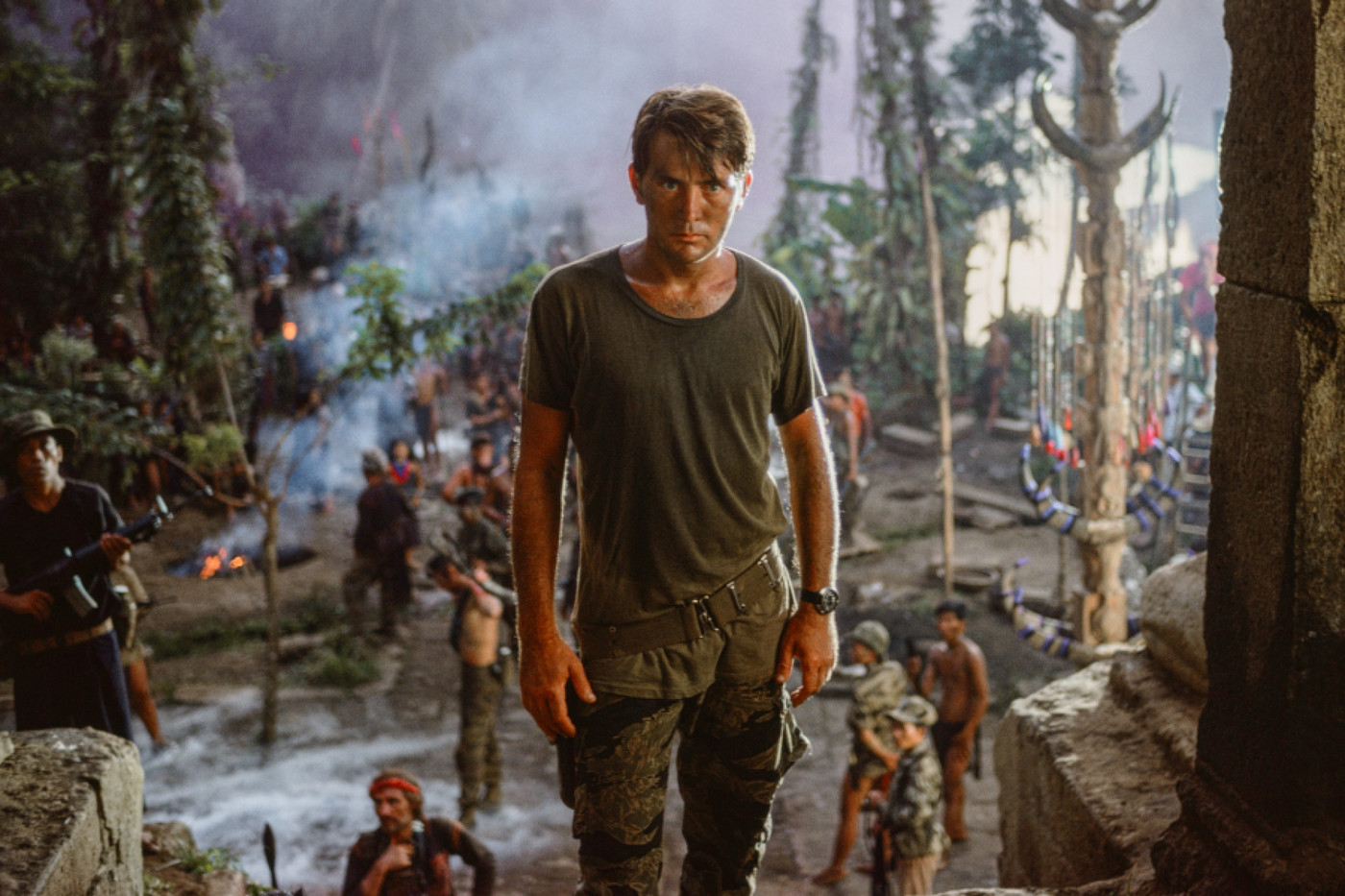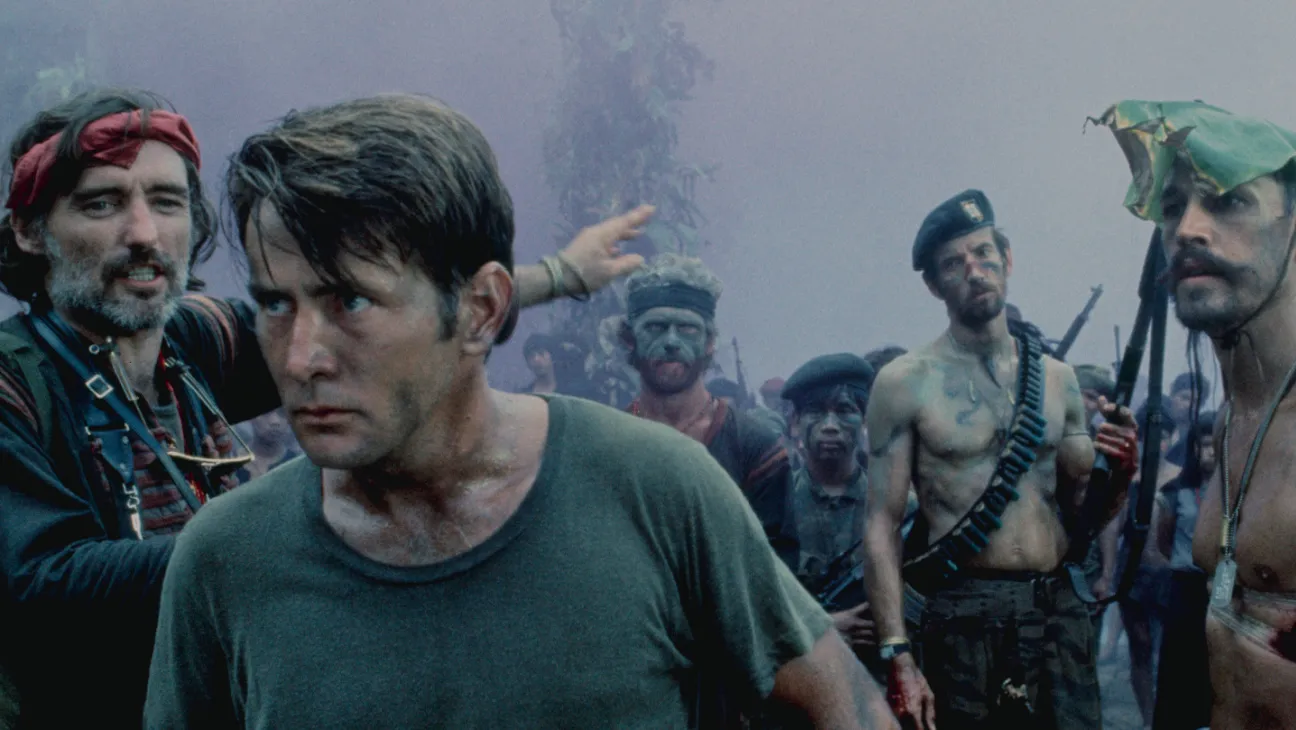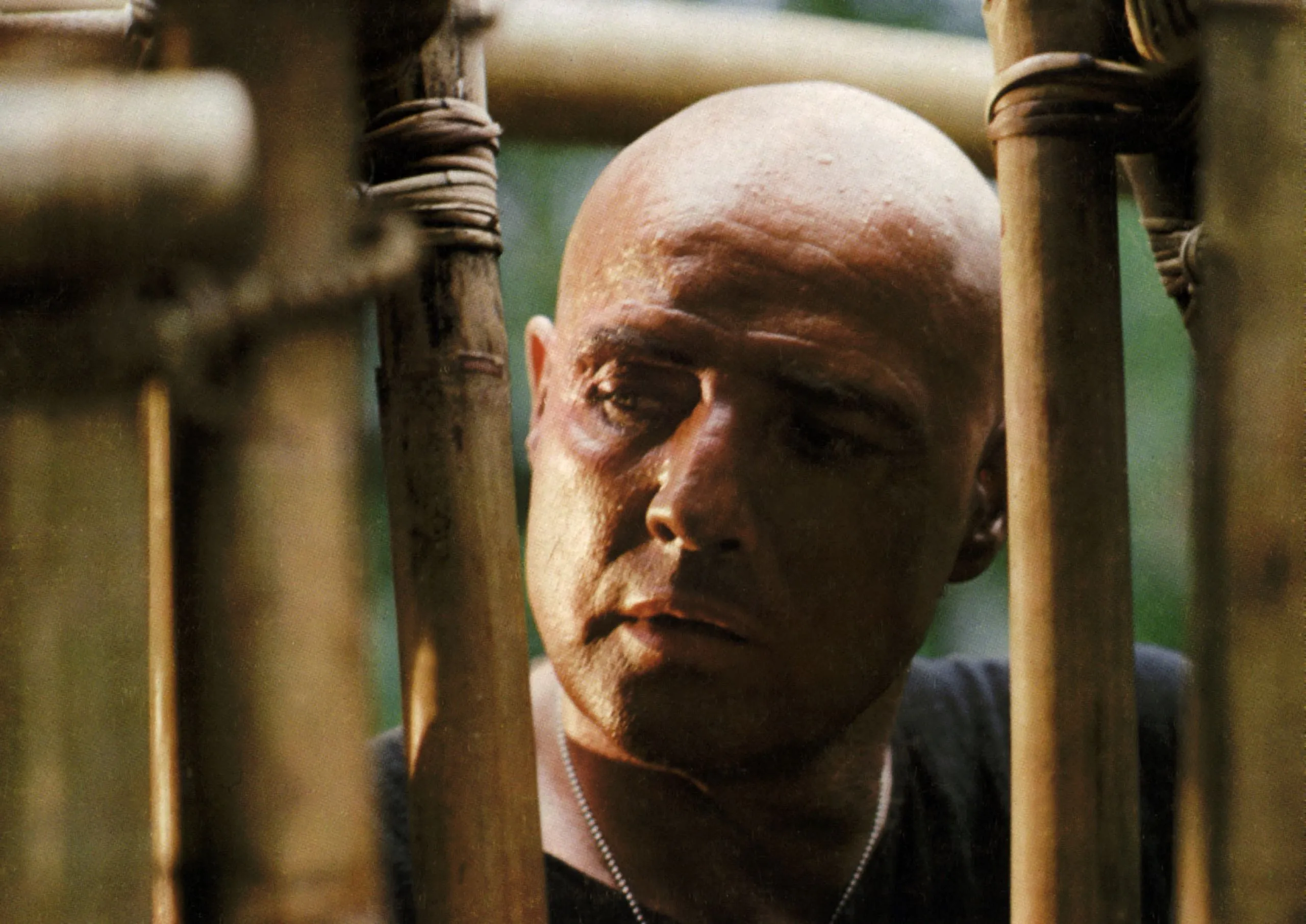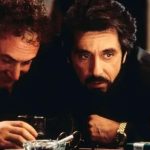Apocalypse Now (1979)

Review of Apocalypse Now (1979)
Francis Ford Coppola’s Apocalypse Now (1979) is a monumental achievement in cinema, blending psychological intensity with breathtaking visuals to explore the horrors of war and the darkness of the human soul. Loosely adapted from Joseph Conrad’s novella Heart of Darkness, the film transposes the narrative to the Vietnam War, creating a surreal and haunting journey into the depths of conflict and moral ambiguity.
A Journey into Madness
The film follows Captain Benjamin Willard (Martin Sheen), a disillusioned soldier tasked with a dangerous and morally ambiguous mission: to travel upriver into Cambodia and assassinate Colonel Walter Kurtz (Marlon Brando), a rogue officer who has established himself as a god-like figure among a local tribe. As Willard ventures deeper into the jungle, the journey becomes as much about confronting his own inner demons as it is about fulfilling his mission.
This narrative structure allows Apocalypse Now to delve into themes of power, morality, and the corrupting influence of war. The river serves as a metaphorical descent into the primal aspects of human nature, with each stop along the way revealing new layers of chaos and depravity.
Stellar Performances
The performances in Apocalypse Now are nothing short of extraordinary. Martin Sheen delivers a career-defining performance as Captain Willard, capturing the character’s internal struggle and gradual unraveling with haunting precision. Marlon Brando’s portrayal of Colonel Kurtz is equally mesmerizing, his enigmatic presence and chilling monologues leaving an indelible mark on the viewer.
The supporting cast adds further depth to the film. Robert Duvall’s Lieutenant Colonel Kilgore is unforgettable, embodying the absurdity of war with his iconic declaration, “I love the smell of napalm in the morning.” Dennis Hopper’s manic journalist and Frederic Forrest’s Chef add to the film’s tapestry of vivid and unsettling characters.
A Visual and Auditory Masterpiece
Visually, Apocalypse Now is a triumph. Vittorio Storaro’s cinematography captures the raw beauty and terror of the jungle, using light and shadow to create a dreamlike, almost hallucinatory atmosphere. The film’s use of practical effects, from explosions to the iconic helicopter assault sequence, is both visceral and awe-inspiring.
The soundtrack is equally impactful, blending traditional orchestral compositions with contemporary tracks like The Doors’ “The End,” which bookends the film with haunting poignancy. The sound design immerses viewers in the chaos of war, from the deafening roar of helicopters to the eerie silence of the jungle.
Themes of War and Humanity
Apocalypse Now is more than a war film; it is a profound meditation on the human condition. It examines the thin veneer of civilization, exposing the primal instincts that lie beneath. The film’s exploration of moral ambiguity challenges viewers to question the nature of good and evil, as well as the justifications for violence and power.
Colonel Kurtz’s descent into madness is not portrayed as an isolated case but as a symptom of the larger insanity of war. His chilling assertion that “horror and moral terror are your friends” encapsulates the film’s unsettling perspective on the human capacity for both destruction and self-justification.
The Making of a Classic
The production of Apocalypse Now is as legendary as the film itself. Coppola’s ambitious vision led to numerous challenges, including budget overruns, a grueling shoot in the Philippines, and the near-death of Martin Sheen during filming. Despite these obstacles, the end result is a cinematic masterpiece that stands as a testament to Coppola’s determination and artistry.
Legacy and Impact
Since its release, Apocalypse Now has been hailed as one of the greatest films ever made. Its influence can be seen in countless works of cinema, from war dramas to psychological thrillers. The film’s unflinching portrayal of the human psyche and its exploration of existential themes continue to resonate with audiences and filmmakers alike.
The film’s multiple versions, including the extended Redux edition and Final Cut, have allowed new generations to experience its power in different forms, further cementing its status as a cultural and artistic landmark.
Final Thoughts
Apocalypse Now (1979) is a harrowing and unforgettable exploration of war, humanity, and the depths of the human soul. With its extraordinary performances, stunning visuals, and profound themes, it remains a towering achievement in the history of cinema. Whether viewed as a war film, a psychological thriller, or a philosophical journey, Apocalypse Now offers an experience that is as challenging as it is rewarding—a true masterpiece that lingers in the mind long after the credits roll.










